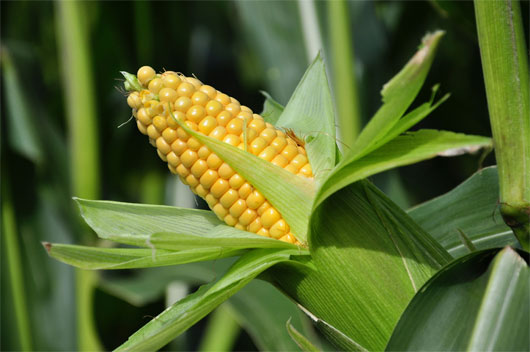He called on the EU to approve genetically modified corn by voting
The British Minister of Agriculture has called on the EU to approve the commercialization of genetically modified corn through voting in late January and thinks it is science-based.
>>>Spain saves nearly 200 million euros thanks to genetically modified corn
The proposed list includes deep-resistant corn types developed jointly by DuPont and Dow Chemical."If approved, this will be the first genetically modified crop to be approved for planting in the EU in the past 15 years , " Reuters quoted Owen Paterson at the Oxford Farming Conference.
"The real risk for Europe is that the region is gradually becoming a world agricultural museum, while in other parts of the world, many corporations with innovative thinking are investing and constantly broadcasting. technology innovation , ' said Mr. Owen Paterson.
According to Paterson, whether approved or not, the implementation of the vote will be a breakthrough in implementing EU legal frameworks for genetically modified crops.

Photo: motherearthnews.com
The European Community shared that there would be a "binding responsibility" , if it required a vote on the issue, after the EU Supreme Court's decision to delay the approval process for property. genetically modified products.
The proposal will be voted on by high-ranking EU diplomats from 28 countries around the end of January this year to follow the majority vote. England, Sweden and Spain are expected to be supportive countries while France, Austria and Italy are expected to oppose the approval.
"Genetically modified crops are not gods. But the longer Europe closes with it, the greater the risk that other regions will overcome us in many different areas." Mr. Paterson said.
BASF Group is typical evidence for this problem. The group decided to move the entire BASF Scientific Research Center headquarters to the United States, and stopped all the development or commercialization of their genetically modified seeds in Europe.
Although the month before the trial in Europe reversed the previous verdict and allowed commercialization of BASF's transgenic potato in Europe, the potato has no longer existed, because BASF stopped their entire product business in 2012.
"This ruling affirmed the correctness of the group's decision to focus all biotech research into viable markets in the future," a BASF representative said.
- Legislation of genetically modified corn harmful
- Spain saved nearly 200 million euros thanks to genetically modified corn
- Countering genetically modified corn causes cancer in mice
- Recognizing 4 genetically modified corn varieties for food
- The first transgenic corn was certified for biosecurity
- Genetically modified corn is ineffective
- Using genetically modified foods is prone to cancer
- 6 academies rejected the study of GM maize causing cancer
- Genetically modified plants still cause doubts
- Genetically modified corn makes Chinese people confused
- Manipulating food security?
- Philippines corn queen
 Vietnam 5th Asian champion on fuel-efficient vehicles
Vietnam 5th Asian champion on fuel-efficient vehicles We can read all NASA studies completely free of charge
We can read all NASA studies completely free of charge Singer and songwriter Bob Dylan won the 2016 Nobel Prize for Literature
Singer and songwriter Bob Dylan won the 2016 Nobel Prize for Literature Scientific revolution in Asia
Scientific revolution in Asia